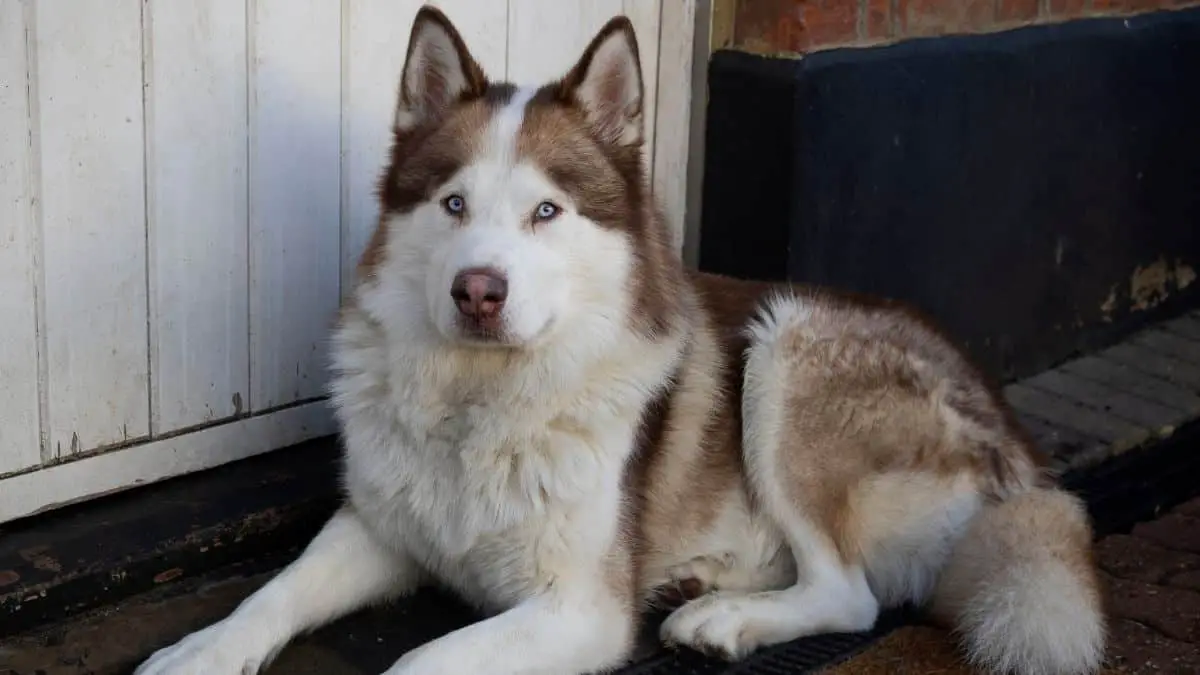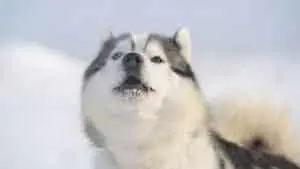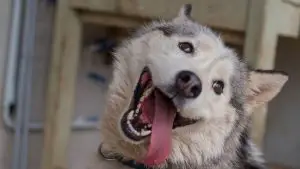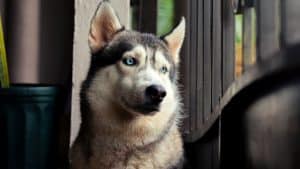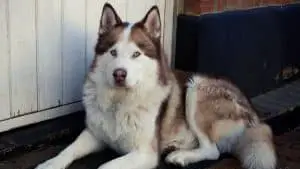4 Tips & Advice for Siberian Husky Separation Anxiety
As much as dog owners would love to spend all day, every day with their furry friend, in reality, this is just not possible. If you lead a busy life, it is highly likely that you will be separated from your Husky for substantial periods of time, often on a daily basis. In some Huskies, this can lead to anxiety issues.
Your Husky dog may be suffering from separation anxiety for a number of reasons. At heart, Siberian Huskies are pack animals – you and your family are his human pack. They are a breed of dog that thrives on companionship, and he will feel its loss keenly when you are absent. There are, however, tips and tricks you can use to lessen your Husky’s anxiety issues.
There is no doubt that leaving a crying, whining Siberian Husky at home is a heartbreaking experience for any owner and presents an issue that you wish to address as soon as possible. A gloomy Husky is not the only reason you might want to address your dog’s separation anxiety; an anxious Husky may also start demonstrating destructive behavior such as chewing and biting.
Table of Contents
Symptoms of separation anxiety
If you suspect your Husky may be suffering from separation anxiety, it is important to familiarize yourself with his behaviors and body language. Not only will this help you identify his triggers, but it can also help you determine the best method of treatment.
Some of the common symptoms of separation anxiety in dogs include:
- Pacing, whining, or shaking that sets in as soon as your Husky notices that you are preparing to leave.
- Barking and howling excessively.
- Destructive behaviors, such as biting, chewing, clawing, and digging. You may notice that your Husky has damaged your doors or windows.
- Bathroom accidents in the house while you are away.
- Excessive drooling and/or panting.
- In extreme cases, concerted attempts at escape by your Husky.
Some of these symptoms might just be a sign of poor or inadequate training – for example, bathroom accidents in your home may simply be a sign that your pup has not been properly potty trained.
However, if your Husky demonstrates several of these signs on a regular basis, it could be a sign that he is suffering from separation anxiety.
Causes of separation anxiety
There is no definitive answer as to what causes separation anxiety in dogs. It could be that your pup was abandoned or came from a shelter. A change in the household schedule, where you are suddenly leaving home for longer periods of time, may also give rise to this disorder.
Sadly, it can also come about through the death of another pet or family member.
It is important to note that you should rule out any medical issues that might be triggering symptoms, such as soiling the house or excessive drooling or panting. These isolated problems may also be caused by new medication, so make sure you keep track of what you give your Husky.
Addressing separation anxiety in your Husky
As with most elements of training dogs, you should address your Husky’s separation anxiety from the time he is a puppy. Ideally, you will not raise a puppy that is excessively or overly dependent on you in the first place.
For most puppies, their anxiety will be quite minor and be easily addressed with a few tips and techniques.
- Maintain a calm and cool atmosphere when you both depart and arrive home, and don’t fuss over your puppy at these times. In fact, completely ignore your puppy if you can!
- Leave your puppy with some recently worn clothing – a t-shirt or a pair of socks will do. Your puppy will be comforted by lingering traces of your smell.
- Establish a command word that lets your puppy know that you will be coming back.
You should demonstrate to your puppy that when you leave, you will always come back. You could try leaving for just a few seconds, stand outside the door then come back. Prolong each time you leave, and eventually, you will be able to leave for prolonged periods of time without panicking your pup.
In more severe separation anxiety cases, you will have to make a more deliberate, concerted effort.
Begin desensitization training, using the ‘stay’ command and lots of positive reinforcement to teach your dog that they can remain safely and happily in one room while you are in another.
Once you have established this process as normal behavior, you may be able to keep your dog confined in a room (such as the laundry) while you are away.
If none of these tips and tricks seem to help, you can discuss medication options with your vet or enroll your Husky in a doggy daycare.
Proper training of Siberian huskies is also known to ease separation anxiety. It would be a good idea to take him for obedience classes.
These obedience classes will teach your dog to trust you and help him understand that he can trust you to come back when you leave.
Does crating help with separation anxiety?
Crating may also help with separation anxiety. If used correctly, a crate is a place of comfort and a place where your dog can feel secure.
Crating also helps prevent bad habits like chewing your furniture. When you crate your Husky, leave him with toys to play with. They will keep him busy and distracted until you return home.
Frequently Asked Questions
What is dog separation anxiety?
Just like humans, dogs form attachments to the people closest to them. In some dogs, this attachment may become excessive and result in separation anxiety. It is a state of mind that arises due to your dog’s insecurities and his fear that you may never come back.
Although it may seem endearing at first, this is a real disorder and can cause genuine distress to your furry friend. It is best to establish a routine with your dog from an early age that will normalize your absence from home and reduce any feelings of anxiety they may have while you are away.
Can you leave a Husky at home alone?
It is unrealistic to expect a dog owner to always be with their pup, 24 hours a day, 7 days a week. Whether it is leaving home to go to work, to run errands, or even go on holiday, the reality of being a Husky owner is that you will need to leave your Husky alone for extended periods of time throughout the course of your life together.
Start to train your Husky to be accepting of your absence from a young age. This way, it will become an ingrained behavior and means the act of leaving the house will not give rise to any bad habits on behalf of your dog.
That being said, if you expect to be away from home for a very extended period of time, such as going away for the weekend, you should either try and take your dog to a boarding kennel or have a friend or family member drop in on them.
Do Huskies need constant attention?
As well as being bred as sled dogs, Huskies were originally intended to be companion animals. As such, they thrive on love and attention and will enjoy being part of your family.
Although they love lots of love and affection, your Husky will also enjoy some me-time on occasion. By providing your Husky with a place that he can retreat to, such as a crate, he will get to be comfortable with his own company. This can also help with minimizing any tendencies towards anxiety in the long run.
Do Huskies get attached to their owners?
Huskies are extremely loyal dogs and will become attached to their owners. For this reason, they make fantastic family pets.
Although this tendency to attachment might see your Husky develop separation anxiety, this can easily be avoided with the proper care and training.
How to get a husky to stop whining
There are a few methods you can use to stop your Husky from whining.
- Reward quiet behavior: do not give your Husky food or play with them when they are whining.
- Ignore them: turn away from your Husky when they begin to whine, completely ignoring the behavior.
- Schedule quiet time: have a regular, quiet cuddle session with your Husky. Stop petting them whenever they begin to whine.
- Time outs: if your Husky constantly whines, put him away in a room with no distractions or toys. Wait until you have a period of no whining (10 seconds or so) before letting your Husky out.
Always ensure that there is no medical reason for your Husky whining before you try any of the above techniques.
How to train a husky to stay alone for 6-8 hrs
If you wish to train your Husky to be alone for a substantial period of time, you will need to get him familiar and comfortable with both your absence and his own company.
The crating technique can be quite useful here. By encouraging your Husky to use his crate as a place of refuge and solo time while you are together, he will become accustomed to being alone. This will make it less of a shock when you leave the house.

